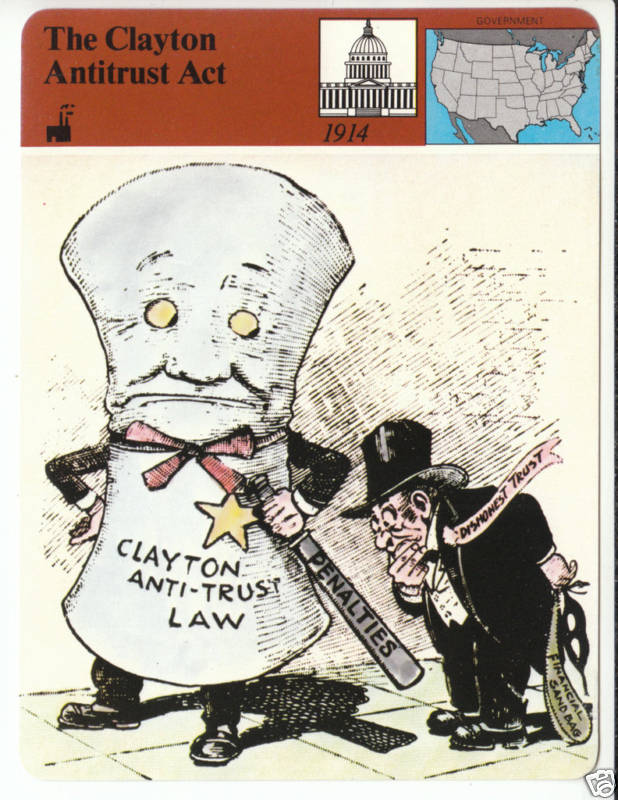On October 15, 1914, the Clayton Anti-Trust Act was passed in order to strengthen the previously implemented Sherman Anti-Trust Act in order to combat the rapid formation of big businesses and monopolies. Hence, removing the anti-labor interpretation of the Sherman Anti-Trust Act. There were four main points of emphasis involved in the Act: sales, mergers, acquisitions, and price discrimination. Price discrimination meant that the price of a commodity could not be altered based on the consumer. Furthermore, the principle of Sales clarified that buyers didn't deal with the competitors of the seller. The Mergers and acquisitions ensured that no one was a director of two or more competing corporations. Ultimately, Vendors are not allowed to purchase goods and then resell them with altered prices. Corporations are not allowed to assume control of other corporations in their market with the purpose of creating a monopoly. This helped eliminate discrepancies in the Sherman Anti-Trust Act, helping combat the formation of monopolies.
Clayton Antitrust Act:

The Sherman Antitrust Act was the predecessor to the Clayton Antitrust Act but it was not as successful:

Clayton Antitrust Act:

The Sherman Antitrust Act was the predecessor to the Clayton Antitrust Act but it was not as successful:
Comments
Post a Comment